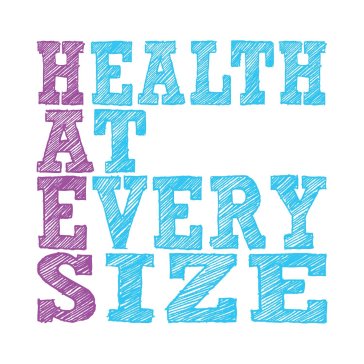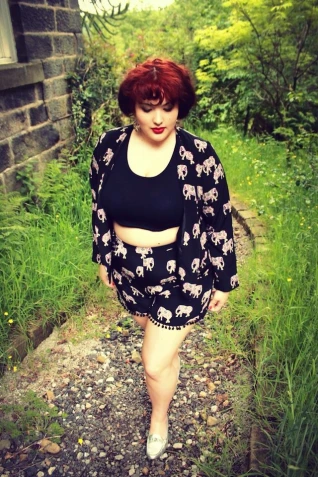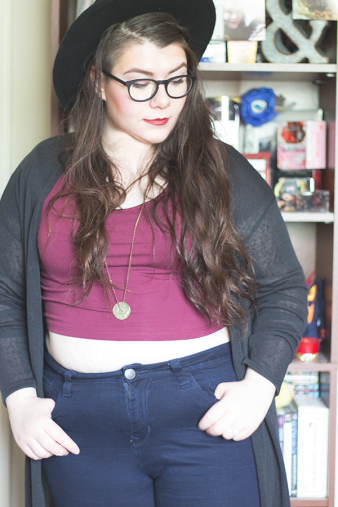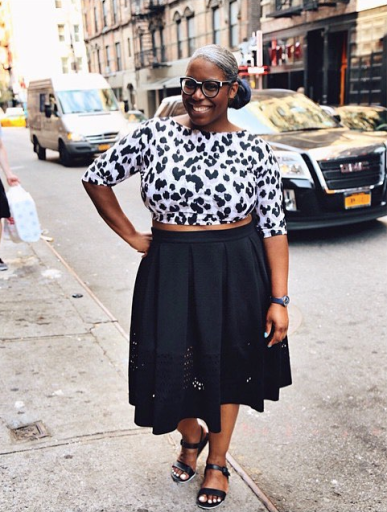
Recently I have been inundated with questions about extreme hunger. This is not unexpected, as extreme hunger is one of the most terrifying aspects of recovery, and one that the eating disorder will latch onto; screaming all of your/its fears into your brain and how they have/are about to come true. Extreme hunger is probably the most common topic that comes up in messages to me asking for information and advice, alongside digestive issues. Recently though, the questions have become even more unrelenting: I could answer five questions in a row about extreme hunger and then within hours receive five more, even though their question was answered in the previous messages. Either the senders of these messages did not take the time to read them (or my FAQ), or, as is understandable, they see themselves as the exception to the recovery process (the “I am a magical unicorn” thinking process).

Our anxieties and our eating disorders tell us that what we are experiencing isn’t the normal symptoms of recovery; that we are different; that our experiences with an eating disorder do not warrant the symptoms of recovery; that we were not sick enough for this; that somehow we need less food; that somehow our weight gain is not normal; that unlike everyone else the numbers on the scale will increase forever more and we will gain into infinity. And I get this entirely, because I was the same, but there is only so many times that I can repeat the same things over and over again, especially when they are in messages that come directly after one another. And so I decided to create this article to address the fears and doubts that are the most common: the ones that come up in those messages time and time again. The first part of this issue is to talk about the main fears of those with extreme hunger. The second part is a collection of experiences from those who have gone through extreme hunger and come out the other side.
Without further ado:
You can experience extreme hunger regardless of what weight you are or how much weight you lost.
If you restricted your intake, your body experienced an energy deficit. This energy deficit causes damage. This can result in extreme hunger.
Extreme hunger varies in severity and length of time.
It often lasts longer, or is more extreme, in those who have restricted for long periods of time, or those who have restricted very severely. Combining the two is therefore likely to double the chances of this. However, everyone is different, and the severity of extreme hunger is down to how much the damage the body has to repair. If you have extreme hunger, you have it for a reason.
Extreme hunger can come at any time.
Extreme hunger can come and go, be constant, start on Day 1 of recovery (or even during your ED, hence “binging” episodes), come during the middle of the recovery, or the end, or not at all, and it can last for varying periods of time.
It is totally normal to crave what you may call “unhealthy” or “junk” food.
High carb, high fat, and high sugar foods are foods that you are likely to have restricted during your eating disorder, which is why your body craves them now. It is deficient in those things and also in energy, and these foods tend to be high in energy and are easier to process by the body. Basically, this food is easy energy for a starved body. Your cravings for these types of foods will calm down in time as your body gets healthier and your mind recognises that you will not deprive it of these foods again. As a side note, just remember, that there is no “healthy” and “unhealthy” foods; “good” or “bad”, there are just foods that have different nutritional and energy values. Food is food, and also food is not a moral issue.
Extreme hunger is normal, natural, and expected.
If you starve your body, it is going to need more calories than a healthy, energy-balanced body, in order to get back to its balanced state. You can read more information about extreme hunger, why it happens, and how to cope with it here. I also have a video on the topic here. You are not alone in this experience.
Extreme hunger will not lead you to gain forever.
If you starve and lose weight, you will gain that weight back when you start eating more (and possibly more if your body is still growing and developing as your natural weight is not static until around 25ish when you have grown fully into your adult body). However, extreme hunger is more about internal repairs. So yes, some energy will go towards gaining weight, but lots of energy also goes into healing the damage done to your insides, which means it is used up doing this and is not part of weight gain. When your body is not so severely damaged, your appetite will taper down.
Extreme hunger will stop.
Extreme hunger is there for a very good reason: because your body is severely damaged and needs energy in order to repair this damage. When the body is healthier and not in need of so much energy, it will stop giving you signals for so much energy. Trust the body. It wants to heal you. It wants you to be happy and healthy. Your eating disorder wants to kill you. Put your faith in the right one, even though handing over control feels so scary. Remember that the illusion of control is scarier, and that with your ED you were never in control at all. You were controlled by something that wanted you as miserable and as sick as possible. It’s ultimate goal is your death. Take back control by working with your body, not against it. By giving over control to your body, you will be more in control than you ever have been, because you are reclaiming your health and happiness.
Your eating disorder will try and tell you that you are using extreme hunger as an excuse to eat, but that you were “not sick enough”, “didn’t restrict enough”, “didn’t lose enough weight” to warrant experiencing extreme hunger in recovery.
This is manipulation and bullying by your eating disorder. It can feel that it is losing, and it will try anything to have total control over you again. P.s. you never need an excuse to eat whatever you want, and if you can eat amounts that are “extreme hunger amounts”, then there’s a very good reason for it, and that reason is that the body needs it.
What you think is extreme hunger might not be extreme hunger.
2,500-3,500 calories is a very normal appetite. 3,500-4,000ish is more of a grey area. It is a larger appetite than most people with a healthy, energy-balanced body (although can be reached by energy-balanced people, usually by eating lots at a restaurant, or a buffet, or a night out drinking lots of alcohol and mixers), but it is not exactly extreme. 4,000-4,500+ is when it would start to be more in the extreme hunger range. All of these ranges can be experienced by a person in recovery from a restrictive eating disorder.
You are not binging and you do not have BED.
It feels very very much like binging, but it is not BED, and here we can look at the criteria for Binge Eating Disorder:
|
DSM-5 Diagnostic Criteria
|
- Recurrent episodes of binge eating. An episode of binge eating is characterized by both of the following:
- eating, in a discrete period of time (for example, within any 2-hour period), an amount of food that is definitely larger than most people would eat in a similar period of time under similar circumstances
- a sense of lack of control over eating during the episode (for example, a feeling that one cannot stop eating or control what or how much one is eating)
- The binge-eating episodes are associated with three (or more) of the following:
- eating much more rapidly than normal
- eating until feeling uncomfortably full
- eating large amounts of food when not feeling physically hungry
- eating alone because of feeling embarrassed by how much one is eating
- feeling disgusted with oneself, depressed, or very guilty afterwards
- Marked distress regarding binge eating is present.
- The binge eating occurs, on average, at least once a week for three months.
- The binge eating is not associated with the recurrent use of inappropriate compensatory behavior (for example, purging) and does not occur exclusively during the course Anorexia Nervosa, Bulimia Nervosa, or Avoidant/Restrictive Food Intake Disorder.
|
|
You will probably read these and think but this is what I am experiencing! Let’s go through it point by point:
- Yes, you will eat food that is larger than most people would eat in that time because you have a starved body that needs loads more energy than most people.
You will absolutely feel a lack of control because your eating disorder (which gives you the illusion of being in control) is not driving this: your body is, and therefore your ED will feel out of control.
- Yes, you will probably eat rapidly because your body wants to get energy is as fast as it can because it is desperate for it.
- Yes, you will feel uncomfortably full because a) your stomach is shrunken and b) this is an amount of food that your stomach is not used to at all.
- You may not feel physically hungry because extreme hunger can be experienced in many different ways. Extreme hunger can be the feeling of hunger and tummy rumblings etc, but for the most part, from talking to people and experiencing it myself, it comes in the form of feeling empty and/or intense urges to eat/mental hunger.
- Feeling embarrassed, disgusted, depressed, and guilt, along with marked distress, whilst and/or after eating a large amount of food, is quite obviously going to be experienced by someone with a restrictive eating disorder.
- Again, it can be experienced every day, or on and off on some days and some not, or once a week, or not for a week and then constantly for weeks, etc etc.
- Now if we take a look at the last in that category, I want to draw your attention to “does not occur exclusively during the course Anorexia Nervosa, Bulimia Nervosa, or Avoidant/Restrictive Food Intake Disorder“. You are in recovery from one of these eating disorders (or OSFED/EDNOS). This means that you still have that eating disorder, because even though you are moving forwards from it, it is still active for you, until it is inactive and you are in remission. Meaning that you do not have BED. You have anorexia, bulimia, OSFED, or ARFID, and your body is trying to recover from the physical effects that this has had on you.

Personal Experiences With Extreme Hunger : Those Who Have Come Out The Other Side
Extreme hunger was definitely the most daunting part of the recovery process for me. Mine began about 1 week into recovery and lasted non stop for approximately 3 months and then fairly regularly for the next 9 months with only the odd day here and there after that. It was emotionally traumatic and I was, like many people who go through it, certain that I had developed a binge eating food addiction. I had not… it was exactly what my body was screaming out for and all I had to do was listen to it and respond appropriately without compensating through exercise or attempts to restrict afterwards. I would eat thousands of calories in single sittings, often after a meal is when it would hit me. For example I’d have a normal lunch and would then suddenly feel like a bottomless pit, like my insides were desperate for more. I’d eat several family packs of biscuits, boxes of cereal, whole boxes of magnum ice-creams, share bags of salted nuts, loaves of bread, you name it. It was terrifying but I battled through the fear and the hatred my ED would scream at me and allowed my body to do the healing it so desperately needed to do. Over time the episodes of EH would become fewer and further between and now I simply couldn’t eat as much food as that in a single sitting- now I look back on it and know with confidence and experience that it was essential for my recovery and pivotal in my battle of overcoming my eating disorder. – Emily, 22

I developed an eating disorder when I began restricting calories in order to lose weight. It got out of hand and I then developed bulimia. I wish I had known that my binging (extreme hunger) was a normal reaction to the restriction. Eventually I realised the only way to end the bulimia cycle was to just go all in and let my extreme hunger run its course. It was really really REALLY hard, and scary, with many slip ups, and I recommend building a good support system around yourself. I didn’t count my calories at the time, but I’m sure they went to at least 4000-5000 most days. I think on average I would have hit 4000 calories a day. But there were definite days where it could have easily been 8000 calories. What I remember most is eating entire loafs of bread with butter in one sitting. Definitely entire large icecream tubs were in there. Just complete freedom. It was the best decision I have ever made. It meant I could enrol into university and study. It took the better part of a year for the extreme hunger to completely subside, and then another year for me to be completely rid of disordered thoughts around food. I know I’m so lucky to have gotten through it. I’ve tapered down to a weight that has stayed stable for months without any effort. I now have the brain space to focus on things I actually love doing. I wouldn’t have gotten here if I didn’t let extreme hunger run its course. – Ira, 24

Before I experienced extreme hunger, I had tricked myself into thinking I wasn’t sick anymore, because while I was eating the minimum amount of calories recommended for me for my body weight (which turns out is less than half what I should have been eating to live a normal life) and experiencing extreme orthorexia, I was still, in my mind, eating. I thought that I was well enough to go back to work as a chef. In the six months that followed the years and years of starving myself overwhelmed me and extreme hunger kicked in. I had no idea what it was and was terrified I had developed BED. I would eat cake until I felt sick, throw it away in tears, and then feel the need to eat it so badly that I’d get it out of the bin again. I would eat entire loaves of bread and cheese and all of the food I’d told myself I wasn’t allowed to eat, and panic until I had anxiety attacks. I was terrified and felt so wildly out of control that I started making myself sick again. After months of this, although it was incredibly difficult, I stopped being sick, I stopped counting calories, and I tried really hard to eat what my body was telling me to eat. I threw away my scales. I didn’t look in a mirror for months. I just told myself that it was going to be okay, and that I had to let my body do this so that I could live my life without spending every waking moment thinking about fat and weight and diet plans. I just wanted to be able to live like normal people lived. Obviously I put on weight, because my body was starved and was desperate to hold on to the calories I was putting in to it, but after a few months of extreme hunger, my body began to calm down. My appetite lessened, and my weight evened out. I learned how to eat normal food again, how to eat without calorie counting, and how to eat meals like normal people at normal times. Extreme hunger terrified me because I didn’t know what it was, but I needed to go through it not only to let my body recover from all of the awful things I’d put it through, but also to learn how to eat again. Anonymous, 24

My experience with extreme hunger was a scary one. Going from eating so little to so much in such little time was a shock both mentally and physically… and was actually kind of terrifying at times. My extreme hunger began very soon after embarking on a ‘3000 calories a day’ meal plan. After a few days of this plan, it was as if my body completely took over my mind and wouldn’t rest unless it was well fed. For the first few days of extreme hunger, there was actually very little fear or hesitation involved when it came to eating. I felt FREE. I ate pretty much everything I’d been restricting by the bucket load. If an award could be won for the most chocolate consumption in one sitting I’d definitely win them all (are these awards a thing? I hope so). I’d say that my consumption started at around 5000-6000 at the beginning for around 2 weeks and then crept up to around 10,000 calories a day which I’d say lasted for around 4-5 weeks. Can I just add that it sounds WAY more terrifying than it actually is. Yes – it is scary, but it is also the most freeing thing you could ever experience. After eating around 10,000 calories a day for 4-5 weeks, my hunger began to taper a little; week by week my intake lessened slightly until I was eating 3000-4000 calories naturally and comfortably a day.
Body wise, I gained weight quickly. I had the whole puffy face, slightly pregnant belly thing going on. At the time, I honestly didn’t concentrate much on how I was looking. The feeling of freedom was completely overwhelming and overshadowed the physical effects of what I was going through. That being said, extreme hunger didn’t come without its discomfort. My body was obviously not accustomed to digesting this volume of food, which meant that I experienced fairly severe stomach cramps. I ensured that I stuck to easily digestible food at this time and after a couple of weeks, they passed.
My extreme hunger diminished completely at around 7 months into recovery and I am now 3 years in! Extreme hunger helped me break down so many barriers in recovery and it has enabled me to build a far healthier relationship with food. – Emmy, 22

I was meeting with a nutritionist about once a week at the beginning of my recovery. She would give me a meal plan, calorie goal, etc. It was extremely difficult at first because I had to not only eat, but keep in, the calories I was consuming. Once I was on this meal plan for a few weeks the extreme hunger started to kick in. The biggest issue I had with extreme hunger is that in the beginning you don’t trust your body or think that it’s accurately telling you the things that you want. But one day I just said “fuck it” and tried a different approach. Whatever I was craving I ate, no matter the amount I wanted. The extreme hunger lasted for six months, and was one of the more difficult parts of the recovery process but it is so, so worth it, and is exactly why I can be typing this right now while enjoying ramen with my roommates and knowing that yes, this can be overcome. – Natalia, 21

Last year, I used MinnieMaud to recover from anorexia. Extreme hunger hit me like a truck, and I was a ravenous beast for a solid 4 months. I went from about 90 lbs to 150 lbs, and once I hit that weight, my appetite normalized, which was pretty awesome and relieving. It was a rough and scary road, but having confidence in the principles of MM, and especially the Minnesota starvation study, and TRUSTING my body, helped immensely. – Anonymous, 30

During the early parts of recovery my hunger was huge. I was CONSTANTLY hungry/craving large amounts of food. I would eat blocks of cheese, chips, sandwich after sandwich and still feel hungry even though my stomach felt so full and bloated. It was scary to think the hunger would never end and I’d just keep on eating and eating. BUT, I trusted the process and resigned myself to allowing myself grace during this period knowing many other people had experienced the exact same thing with good results in the end. I knew the key was to not limit myself when it came to food and cravings. It took awhile but slowly I started noticing myself eating and craving smaller portions and feeling satisfied with those portions. The body just needs all those calories and nutrients after being in the negatives for so long. Give yourself time to make up some of the deficits without freaking out too much! You can do it! – Shannon, 34

My extreme hunger started before I even chose to recover. My body eventually decided that after seven years of restriction that varied from minor to severe during that time span, and one year of severe, unrelenting starvation, it was going to have to do something about it. My body would put me in what I can only call “trances”, where I would go to the kitchen and eat loads of porridge oats, then “wake up”, and chaos would ensue, both in my mind and my reactions to what I had eaten. A month or so of this ensued: with my body taking over, and then my eating disorder reacting to it and making me compensate. Then I chose recovery, and tentatively gave myself permission to respond to the hunger and cravings that I was experiencing. During extreme hunger I would eat whole cheesecakes; pints of Ben and Jerry’s; bowls of cereal; whole big Thornton’s chocolate boxes…I was terrified that I had developed BED; that I was using recovery as an excuse to binge; that I would never stop eating so much…but it did. It stopped when I was healthier. My appetite tapered down. It stopped demanding so many high carb and high fat foods. My days of experiencing extreme hunger lessened and grew farther apart. During the second year of my recovery, my appetite was generally normal, with a couple of days of eat around 4,000 calories (in the grey area between normal appetite and extreme hunger, but then again some days I probably didn’t eat enough for my body and therefore ate more on other days). Now my weight is stable, my appetite has normalised, and I haven’t experienced extreme hunger for years. It was terrifying to go through, but it is not endless. It does stop. And it is so important to trust that your body is that hungry for a reason. – Myself (Sarah Young), 25
I hope that this article answers most of the questions related to extreme hunger and gives some reassurance that this is normal and does end.


































